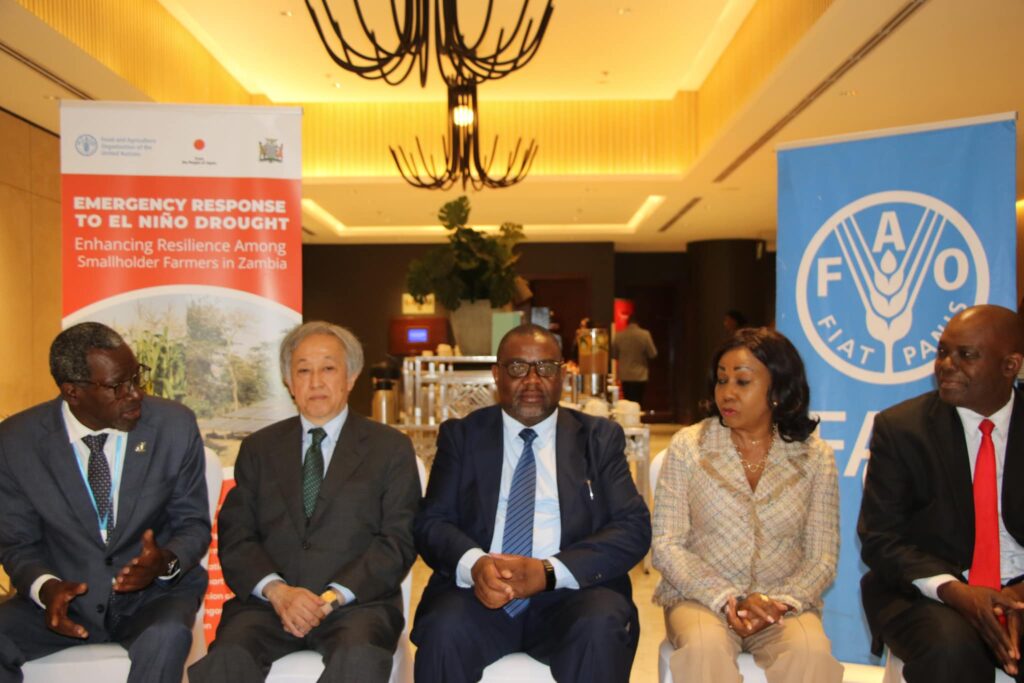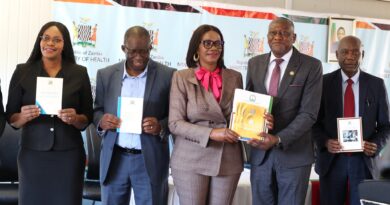Over 6,000 Smallholder Farmers to Benefit from New El Niño Response Project in Zambia
More than 6,000 smallholder farmers in Kafue and Chilanga districts are set to receive critical support through a newly launched emergency response project aimed at restoring livelihoods and strengthening climate resilience in the wake of Zambia’s worst drought in over 40 years.
The initiative—“Emergency Response to El Niño Drought on Smallholder Farmers in Zambia”—was officially launched today by the Ministry of Agriculture, in collaboration with the Food and Agriculture Organization of the United Nations (FAO), and with financial support of US$750,000 from the Government of Japan.
The project will provide drought-hit farming communities with emergency agricultural inputs, solar-powered irrigation systems, climate-smart farming training, and early warning support systems. The intervention is designed not just as immediate relief but as a pathway to long-term agricultural sustainability.
Speaking at the launch ceremony in Lusaka, Ministry of Agriculture Permanent Secretary for Technical Services, Mr. John Mulongoti, described the programme as a lifeline for Zambia’s most vulnerable farmers.
“This project is not just a response to a crisis; it is a stepping stone to long-term resilience. We are ensuring that farmers don’t just recover, but emerge stronger and more equipped to withstand future droughts.”
The 2023/2024 El Niño-induced drought affected 84 out of Zambia’s 116 districts, leading to a significant drop in food production and water scarcity. In February 2024, President Hakainde Hichilema declared a national disaster, triggering a broad-based response to the crisis.
Japanese Ambassador to Zambia, Mr. Kazuyuki Takeuchi, reaffirmed his country’s solidarity with Zambia during this time of need.
“Through this project, we are not only addressing today’s needs but laying a foundation for a more sustainable agricultural future. Our support is built on a philosophy of learning and working together with the Zambian people.”
FAO Country Representative, Anne-Rose Suze Percy Filippini, expressed optimism about the project’s impact:
“With this partnership, we aim to turn the tide of hardship into one of opportunity for smallholder farmers.”
Meanwhile, Disaster Management and Mitigation Unit (DMMU) National Coordinator, Mr. Norman Chipakupaku, highlighted the project’s wider significance beyond humanitarian relief.
“This is more than humanitarian support—it is a coordinated recovery effort that will restore dignity and self-reliance to affected communities.”
The project is aligned with Zambia’s Disaster Response Plan and will be implemented jointly by the Ministry of Agriculture, FAO, and local authorities. It also builds on long-standing partnerships between Zambia and Japan, particularly through the Japan International Cooperation Agency (JICA).



